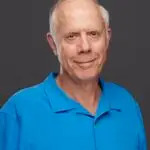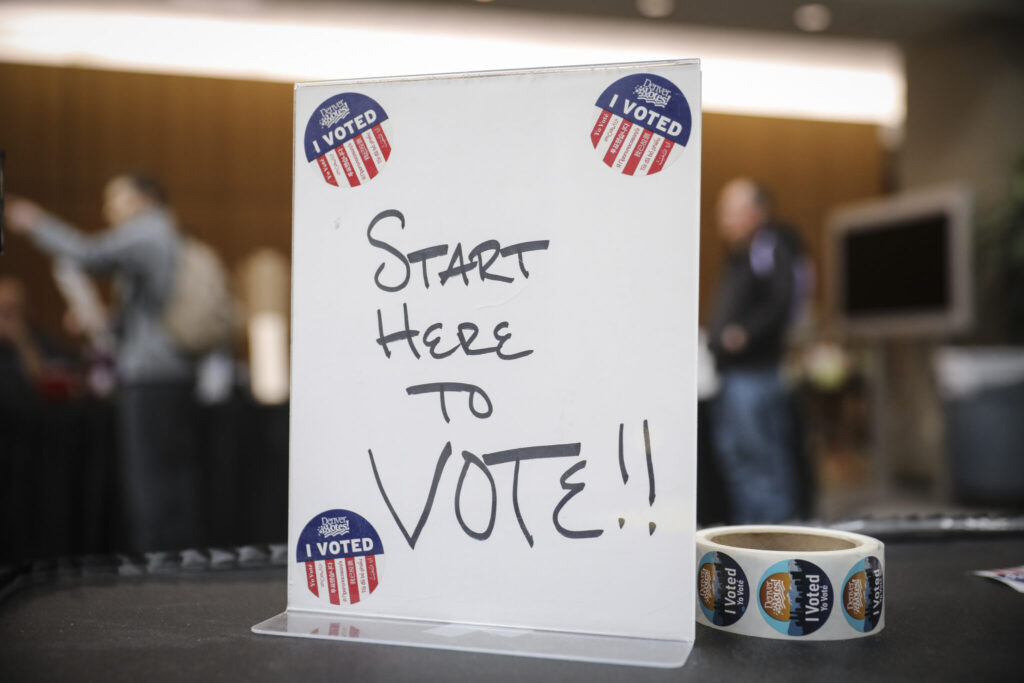The U.S. Supreme Court has rejected a challenge to Florida’s closed primaries system. (Photo by Marc Piscotty/Getty Images)
Among the dozens of petitions the U.S. Supreme Court rejected this week was one from a Sarasota resident who challenged Florida’s closed primary election system.
Michael J. Polelle is a former attorney and emeritus professor at the University of Illinois Chicago School of Law. An independent voter, he was upset after moving to Sarasota in 2012 and learning that as a nonparty-affiliated (NPA) voter, he was shut out of county commission primaries because of the state’s closed system.
Florida is one of a minority of states with closed primaries. That system locks out the nearly 3.4 million Floridians registered as NPA, as well as 443,000 more who are registered with a minor political party — more than 28% of the electorate.
In a phone interview this week, Polelle, 87, told the Phoenix that while he was bothered by not being able to vote in the primaries in 2012, he wasn’t willing to do anything about it at the time. But he said his feelings changed after the 2016 election, when he realized how “fragile” the election system was, and how it gravitates towards polarization.

Michael J. Polelle
Emeritus Professor of Law, UIC-School of Law
“But then what really struck me is that I never realized that my real estate taxes go to pay for these primaries that I can’t vote in. And that makes no sense to me,” he said.
Without the aid of a law firm but with assistance from some of the legal contacts he’s maintained in Chicago, he filed a lawsuit in 2022 in the U.S. Middle District Court of Florida challenging the state’s ban on open primaries, saying it violates his rights under the First Amendment and Equal Protection Clause to political free speech and association. Florida Secretary of State Cord Byrd and Sarasota County Supervisor of Elections Ron Turner were listed as defendants.
U.S. District Judge Steven D. Merryday dismissed the case in November 2022, ruling that Polelle lacked standing and had failed to state a claim for relief. Merryday also found that Florida’s interest in preventing unaffiliated voters’ potential to undermine a political party’s candidate-selection process outweighed his desire to vote in a partisan primary election, especially given the minimal burdens that Florida law imposes on voters who wish to join or switch political parties.
He then filed an appeal last year with the U.S. Circuit Court of Appeals for the Eleventh Circuit. In an 112-page ruling released in March, a three-judge panel rejected his arguments.
The ruling said that Polelle had “both the right to a meaningful vote and the right not to be associated with certain political groups and messages. And Florida’s closed primary burdens those rights.” They added that “Florida’s system of closed primary elections may put Polelle to a ‘Hobson’s Choice,’ but it does not do so unconstitutionally.”
Two of the three justices did write that Polelle had standing to sue the Sarasota County Supervisor of Elections, which Polelle considers “a big win, because prior cases said that people like me, who are not affiliated with a party, don’t even have rights to sue.”
He petitioned for the U.S. Supreme Court to hear the case, with the Independent Voter Project, Open Primaries, and the Forward Party filing a joint amicus brief in support of his lawsuit, which was denied earlier this week.
Polelle cited in his legal brief that polls show there are more voters who call themselves independent than do a Republican or Democrat. A 2024 Gallup survey showed that 43% of Americans considered themselves independents, with 28% calling themselves Democrat and 28% Republican.
Meanwhile, the Florida Democratic Party is engaging in an internal discussion about whether to open future primary elections to NPA voters. Polelle said he received an email from Democratic chair Nikki Fried as his lawsuit was pending, and also heard from Mitchell Berger, an attorney with the party, who asked to see his legal briefs. Polelle says he’s never heard back from him, “so I figured they haven’t really decided what they’re going to do.”

